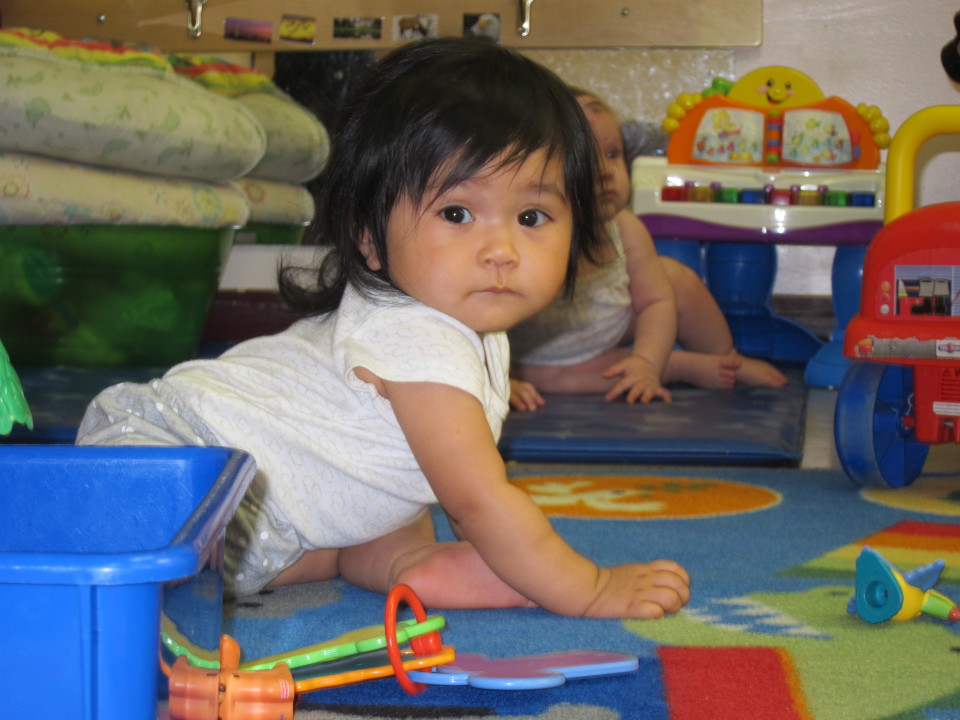Brain Bags: Tune In Tips
- July 14, 2017
- / Shannon Nickinson
- / early-learning

Your baby’s brain is a work in progress and you can influence it the most.
Nearly 85 percent of the brain develops by age 3. The more words a baby hears in that time, the better prepared for school and life he or she will be.
Think of like this: A baby’s brain is like a piggy bank. Every positive word a baby hears from a parent or caregiver is another coin in the bank. The payoff of all those words will come when your baby is ready to start school with the skills to help him or her be ready to learn and succeed in school.
In the IMPACT Brain Bags, the Studer Community Institute shares these tips to help adults get started with some advice from Dr. Dana Suskind, the founder of the Thirty Million Words Initiative at the University of Chicago.
They fall into The Three T's: Tune In, Take Turns, Talk More. Tune In means tune in to what your child is doing. When they make eye contact, when they make their first coos and happy squeals, it's their way of trying to communicate to you.
Pay attention to those moments, and respond with a warm, loving tone. That "serve and return" — the child says a word, you respond, the child responds again — is what experts say is crucial in building the early circuitry of the brain.
Tune In
— Follow them. The part of a young child’s brain that allow them to switch focus is not fully developed. They will focus on only what they are interested in, even if that interest only lasts for five minutes.
— Build words into all play time. If they are stacking blocks, don’t make them quit stacking blocks to listen to a story. Stack blocks with them and while you’re there, talk about the blocks — what color they are, how many there are, which ones are shaped like rectangles or squares.
— Ditch the smartphone or tablet. Instead spend face-to-face time with your baby talking, laughing and being together. Babies learn better from a loving adult than from a screen.
— When your baby cries, respond with warmth and love. Studies show that babies whose cries are left unattended suffer “toxic” stress. If that continues over time, it damages the child’s brain and makes it harder, research shows, for that child to learn, trust others and control his or her emotions.
 CivicCon launches with a look at good growth in cities
CivicCon launches with a look at good growth in cities
 Building stronger brains one baby, one parent at a time
Building stronger brains one baby, one parent at a time
 SCI debuts commercial on Early Learning City
SCI debuts commercial on Early Learning City
 Entrecon: World class speakers and an opportunity to sharpen skills
Entrecon: World class speakers and an opportunity to sharpen skills
 PYP Quality of Life survey 2017
PYP Quality of Life survey 2017
 EntreCon Pensacola 2016: A look back
EntreCon Pensacola 2016: A look back
 Leadership tip: getting better employee takeaways
Leadership tip: getting better employee takeaways
 Leadership tip: be interested instead of interesting
Leadership tip: be interested instead of interesting
 Leadership tip: delivering difficult messages
Leadership tip: delivering difficult messages
 Brain Bags boost Arc, Early Childhood Court programs
Brain Bags boost Arc, Early Childhood Court programs